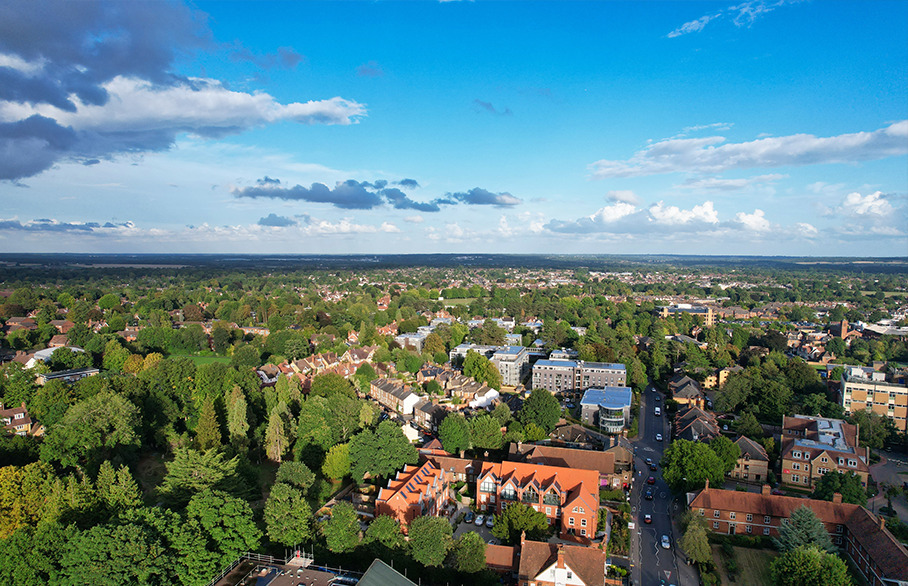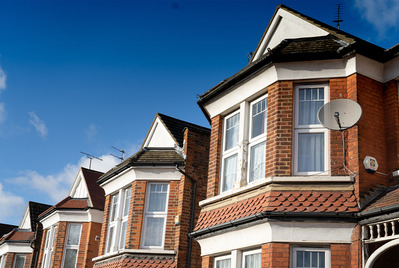
The growing problem of cannabis farms
Illegal cannabis farms have been found in a huge variety of premises, including agricultural farms, industrial warehouses, commercial properties, pubs, underground containers - even dog kennels! But residential properties are the preferred location for large-scale cultivation, according to the National Police Chiefs’ Council.
In June 2023, police forces from across the UK took part in ‘Operation Mille’, the biggest ever crackdown on illegal cannabis farms in Britain. In just that one month, they raided more than a thousand farms in England and Wales and seized 200,000 plants worth £130m. 1,000 suspects were arrested and 450 of those were later charged.
Meanwhile, police forces in the South-West of England have been working together under Operation Scorpion to help drive drugs off the streets in Wiltshire, Gloucestershire, Avon and Somerset, Devon and Cornwall. Phase one took place in March 2022 and a second phase ran in early July this year, with more than a million pounds worth of drugs seized in all.
Signs your rental property is being used as a cannabis farm
If your property is managed by us, we do thorough checks and continue to take care of your property with regular periodic checks.
Three key signs a prospective tenant is intending to set up a cannabis farm:
- They offer to pay 6-12 months’ rent up front, usually in cash
- They try to rush for the tenancy to start and are reluctant to go through referencing and an accompanied check-in
- They ask for complete privacy during the tenancy
If a tenant has slipped through the net at the referencing stage and is now growing cannabis in the property, you’re likely to observe the following:
- They make excuses when you or your agent try to arrange periodical inspections
- They ignore your attempts to contact them – the phone number they gave you may even have been disconnected
- Windows and curtains are never open
- The property is never completely in darkness and bright lights can be seen 24/7
- Visitors come and go at all times of the day and night
- Snow on the roof melts more quickly than it does on other properties
If you suspect your property is being used as a cannabis farm, you must report it to the police immediately.
What happens if a tenant is caught growing cannabis?
Production and possession of cannabis with the intent to supply is a criminal offence that can result in up to 14 years in prison and an unlimited fine – but it’s not just your criminal tenants that could face prosecution. Under section 8 of the Misuse of Drugs Act 1971, it’s illegal to allow a property you own to be used for the growing or supply of cannabis, so if you fail to report suspicions or any knowledge of what’s going on, you can be held liable and face the same penalties.
What kind of damage can cannabis farms cause?
For optimum growth, cannabis plants require a temperature of 24-30 degrees Celsius, and 16-20 hours of regular light. So, to maximise the size and quality of their crop, criminals will rip out fittings and furnishings, make holes in walls and ceilings, and illegally reconfigure electrical systems. All of that can cost tens of thousands to repair – not to mention the risk of illegal electrical wiring that could easily lead to the whole property being destroyed by fire.
Cannabis farms also have an impact on the wider neighbourhood. According to Crimestoppers, violence often erupts if rival gangs and other criminals break in to steal crops and equipment, and those behind the illegal farms are often involved in human trafficking. That means the people growing and dealing the cannabis may have been forced into working to pay off debt, or they might be unpaid illegal immigrants.
So, on top of being illegal and potentially incredibly damaging financially to you as a landlord, cannabis farms also cause misery to countless other people.
How can you protect myself and my property?
If tenants have been able to set up a cannabis farm in a rented property, that means the landlord or agent has failed to act properly - at multiple stages of the letting process.
The reality is that if the proper checks are made on a prospective tenant and the property is managed professionally, there should be no opportunity for criminals to set up this kind of illegal venture.
To make sure your rented property doesn’t become a hive of criminal activity:
- Carry out thorough referencing and credit checks.
A robust referencing process should reassure you that a prospective tenant:
- Does not have any criminal convictions or CCJs
- Is who they say they are
- Has a regular source of income that enables them to pay the rent
If you’re in any doubt about the suitability of a tenant at the referencing stage trust your instincts. We’d suggest you don’t proceed with the tenancy, but if you do, it’s wise to ask for a guarantor.
- Insist on rent being paid monthly via the bank.
If a tenant is able to make large payments to you in cash, that’s generally a red flag. So, ask them to pay the rent monthly from their personal bank account - either by manual transfer or ideally standing order – so there’s a clear record of legal payments, and don’t accept cash.
- Make periodical inspections.
It’s advisable to make an initial inspection in the first 6-8 weeks of the tenancy, then periodical checks every 4-6 months in the first year and at least annually thereafter. As well as checking the property itself, make sure that the people living in the property are the same ones named on the tenancy agreement. In our experience, if a tenant has nothing to hide, there shouldn’t be a problem arranging inspections. And if applicants know at the outset that you carry out regular property inspections they’ll probably decide to rent elsewhere.
Two other recommendations:
- Use a professional letting and managing agent look after the property for you. A suitably qualified agent that’s a member of ARLA Propertymark (or one of the other self-regulating industry bodies) will have robust tenant qualification and property management processes in place.
- Take out insurance cover for malicious damage by tenants. You will probably have to request this as an ‘add on’ because it’s generally not included in a standard landlord insurance policy. While there will be a financial limit and it might not cover the full cost of repairing the kind of damage inflicted by cannabis farms, malicious damage insurance should at least give you some protection.
Note: it’s normally a condition of cover that landlords do proper referencing and carry out regular inspections.
If we already let and manage your property, you can be assured that reference checks, rent collection and periodical inspections are all carried out thoroughly and professionally. But if you have any questions, or you’d like to have a chat about our range of landlord services, just get in touch with your local Your Move branch – we’re always here to help.
The Your Move Content Marketing Team



